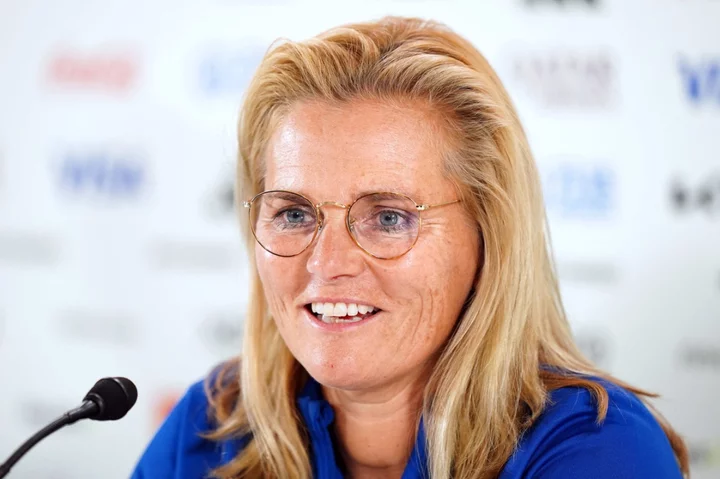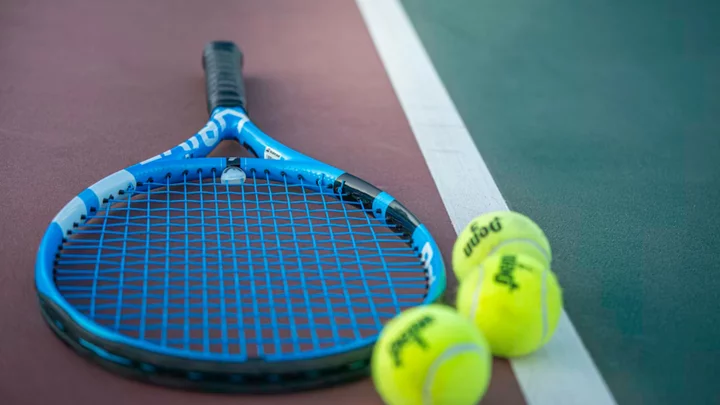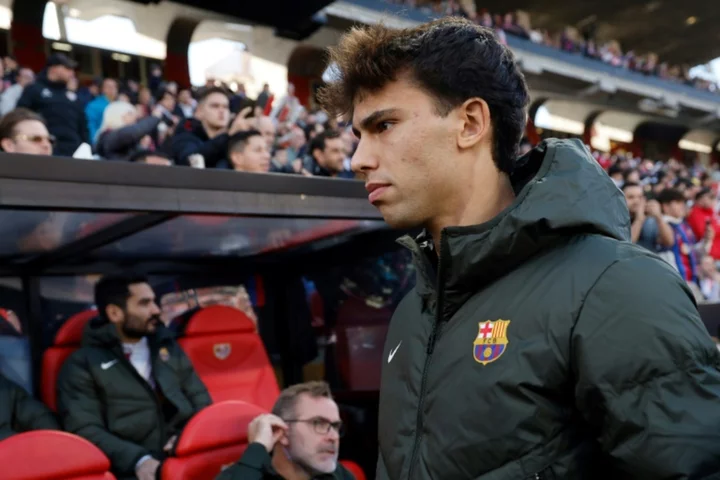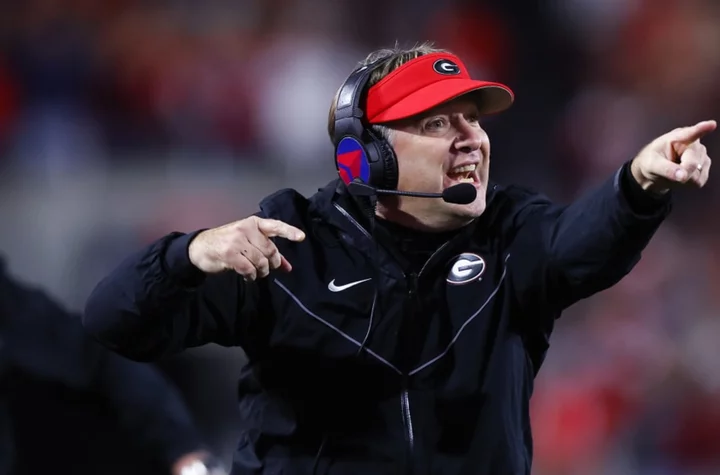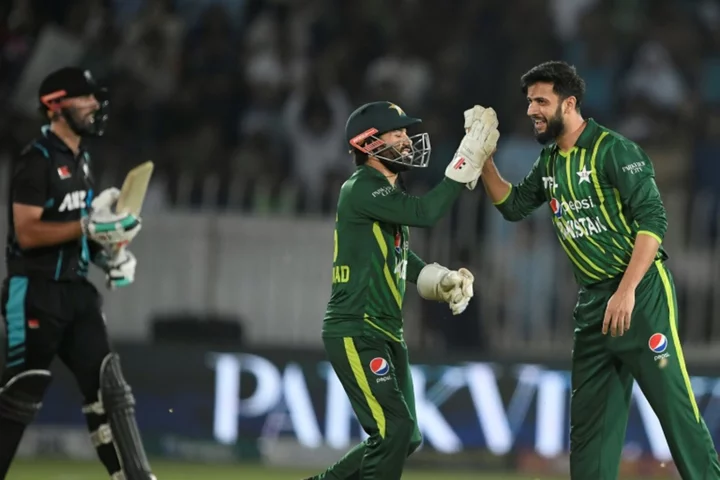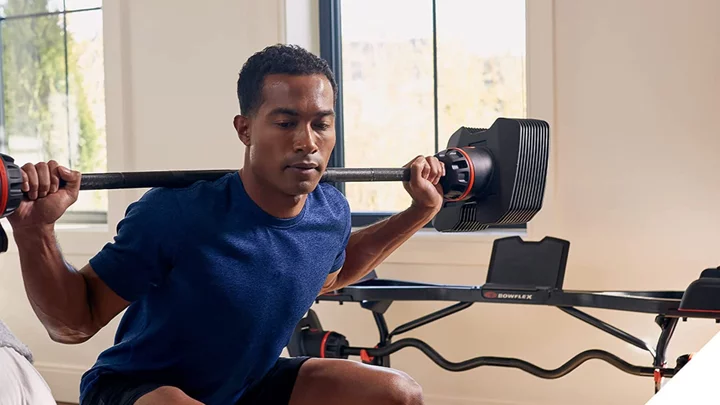When Chloe Kelly scrambled home England’s winner against Germany in the Euro 2022 final last July, Sarina Wiegman achieved a feat only dreamed of since Sir Geoff Hurst’s stunning hat-trick against the same opponents at the same venue in 1966: she brought football home.
Since succeeding Phil Neville as the Lionesses’s coach in September 2021, the Dutchwoman, 53, has barely put a foot wrong, winning 28 of her 35 games in charge, drawing just six and losing only once: a chastening 2-0 friendly defeat to Australia in Brentford in April that may actually have served as a timely reality check ahead of this summer’s Women’s World Cup in the Matildas’ backyard.
It’s three out of three for her team in Australia and New Zealand so far, with the Lionesses’s putting two nervy 1-0 wins over Haiti and Denmark behind them with the 6-1 trouncing of China, which saw them top Group D in style and head into a round of 16 clash against Nigeria brimming with confidence.
But while success might appear to come easily to Sarina Wiegman, matters were not always so straightforward.
Born in The Hague on 26 October 1969, she played street football from a young age but, incredibly, had to pretend to be a boy in order to turn out for Wasserman side GSC ESDO at junior level.
“When I started playing football as a six-year-old girl we weren’t allowed to play, so I played illegally,” she told BBC Radio 5 Live Breakfast recently.
“I had very short hair, looked a little bit maybe like a boy, my parents were really OK and I had a twin brother, so we just started to play and everyone said that’s OK. It wasn’t normal then and now it’s just normal, whether you’re a boy or a girl, you can play football and that’s just great. It was actually crazy before, that you couldn’t, but that’s just the way it is in development I guess.”
Subsequently playing as a central midfielder for the women’s teams HSV Celeritas and KFC ‘71 in the 1980s, she made her debut for the Dutch national side in 1987 against Norway, aged 17, when the well-travelled future Rangers manager Dick Advocaat picked her for what would turn out to be his only game in charge.
She would ultimately make 104 appearances for the Netherlands, becoming their first female centurion when she appeared against Denmark in 2001, prompting Louis van Gaal to pay his respects to her extraordinary accomplishment in an era in which the women’s game had been so badly neglected.
Long before that moment, Wiegman’s performances at the 1988 FIFA Women’s Invitation Tournament in China had caught the eye of then-US women’s coach Anson Dorrance, who subsequently invited her to enrol at the University of North Carolina at Chapel Hill to play for the North Carolina Tar Heels.
She accepted, making 24 appearances in 1989 and scoring four times for a team that featured such future American greats as Mia Hamm. Three members of her current Lionesses squad – Lucy Bronze, Alessia Russo and Lotte Wubben-Moy – would later follow in her footsteps and turn out for the Tar Heels.
Returning to the Netherlands, Wiegman worked as a PE teacher at Segbroek College secondary school in her hometown before signing for Ter Leede in Sassenheim in 1994, whom she would play for until 2003, picking up two championships and a domestic cup along the way.
After retiring as a player, she returned to Ter Leede as the club’s manager in 2006, leading them to a league and cup double in her debut season before joining ADO Den Haag for the inaugural Women’s Eredivisie.
She would spend seven years with Den Haag, again winning the double in 2012 and another cup the following year (Wiegman’s husband Marten Glotzbach, incidentally, is the current manager of the ADO Den Haag’s men’s side).
Wiegman would then serve the Dutch women’s team as assistant manager between 2015 and 2017, twice stepping in as interim boss during that period while also becoming the first woman to hold a coaching role with a men’s team when she joined Sparta Rotterdam as an assistant in 2016. That same year, she also became the first woman to complete her Uefa Pro coaching licence.
Finally promoted to manager of the Netherlands women’s side in 2017, she quickly led them to Euros glory that summer and the World Cup final in France two years later, where they were unfortunate to come up against an imperious Megan Rapinoe-inspired USA
Joining England as the Covid-19 pandemic subsided, her impact on these shores was just as immediate, with players like Mary Earps later speaking movingly about Wiegman’s positive influence on her game and personal life, the new manager arriving at a time when the goalkeeper was suffering a crisis of self-belief and seriously considering hanging up her gloves.
Bringing clear communication and direct attacking football to the Lionesses, Wiegman enjoyed the ideal approach to last summer’s Euros with an emphatic 5-1 win over the Netherlands, the reigning champions and her own former side.
Speaking after that game, Wiegman was characteristically disinclined to get carried away, commenting: “We stick to our strategy and plans, and whether we would lose or win now, we’re not going to all of a sudden sit, we call it, on a pink cloud. We stay grounded.”
Despite losing her sister weeks before the Euros got underway, Wiegman refused to lose focus and England would go from strength to strength as the tournament progressed, thrashing Norway and Northern Ireland in Group A, finding a way past a tricky Spanish side in the quarters before trouncing Sweden 4-0 on the way to that historic showdown with Germany.
“The world around us will be changed,” she reflected in the aftermath of that famous extra-time victory, without hyperbole.
“It’s positive but we have to be aware of it too. But we’ve changed society. That’s what we want. It’s so much more than football. We want to win, but through football you can make little changes in society and that’s what we hoped for. This has done so much for the game and for women and society. In England, but also across the world. It’s so nice to see how enthusiastic everyone was, inside and outside the stadium.”
While she benefitted from a settled first-team at the Euros and at times appeared reluctant to make changes, Wiegman has had her preparations for the World Cup disrupted by injuries, first to Beth Mead, Leah Williamson and Fran Kirby and now Keira Walsh, having already lost Ellen White and Jill Scott to retirement.
But, as usual, she has simply taken adversity in her stride and given opportunities to promising understudies like Lauren James and Katie Zelem, both of whom excelled against China.
Can Wiegman’s England go one better this time than her Dutch side of four years ago?
With Brazil, Germany and Canada already knocked out and the USA decidedly unconvincing and up against a free-scoring Sweden next, the dream has rarely looked closer to becoming a reality.
Read MoreWomen’s World Cup LIVE: Latest news and updates as England prepare for last-16 clash with Nigeria
How the Women’s World Cup delivered its greatest ever group stage — against all the odds
Wiegman hails England’s adaptability after tactics change sparks big win over China
Watch England train ahead of Women’s World Cup last 16 clash with Nigeria
Wiegman hails England’s adaptability after tactics change sparks big win over China
Lauren James delighted to ‘carve out’ her name with superb displays at World Cup

